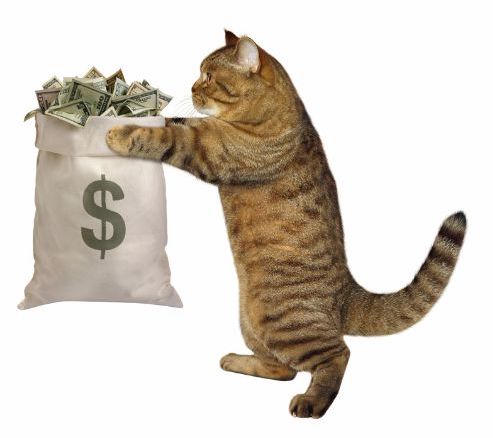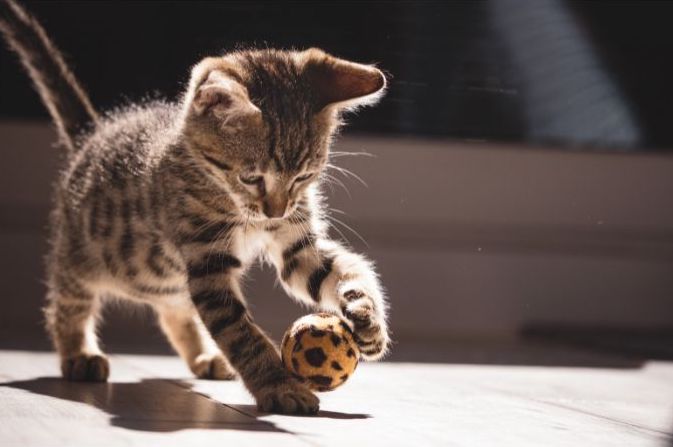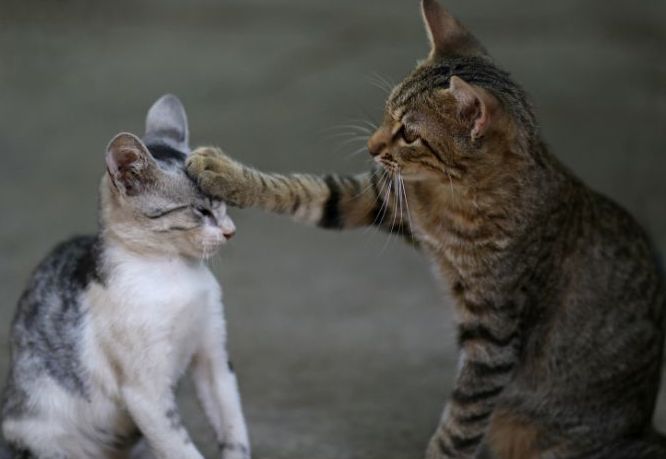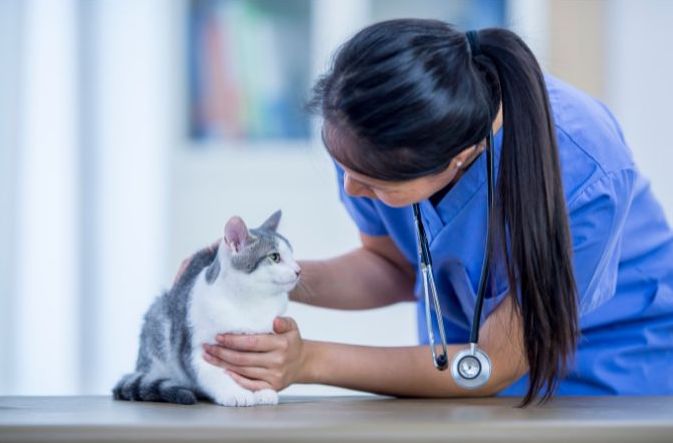How much does a cat cost? This seemingly simple question is actually quite complex, as there are numerous factors that can influence the total expense of cat ownership. In this guide, we’ll look at the financial aspects of acquiring a new cat, from initial costs to essential supplies.
We’ll start by examining the initial costs of buying or adopting a kitten, including adoption fees and breeder prices. Then, we’ll delve into essential equipment expenses such as food and water bowls, litter box setup, scratching posts, and carriers.
Moving on to basic everyday expenses like food choices and kitty litter variations. We will also discuss veterinary care costs covering vaccines, spaying/neutering procedures along with regular nail trimmings and brushings.
Grooming expenses should not be overlooked either; therefore we will compare professional grooming services versus home grooming tools and techniques. Additionally, pet insurance coverage options play an important role in managing potential financial risks associated with owning a pet cat.
Lastly but importantly – unforeseen emergency expenditures like emergency vet visits or household damages caused by cats must be considered when calculating how much does a cat cost overall?

Costs of Owning a Cat
Oh, cat lovers, gather ’round because we’re about to dive into the world of feline finances! You might think these adorable, whiskered creatures simply require a little food, a cozy bed, and a toy or two, but there’s more to consider when tallying up the expenses of owning a fabulous furball. So, let’s break down the costs of living the purr-fect life with your new kitty companion. Bringing a new feline friend into your home involves initial expenses such as adoption fees, breeder prices, and necessary vaccinations and health checks.

Adoption Fees at Shelters
Adopting from a shelter or rescue organization is the most affordable option. But, first things first – bringing home your fluffy friend might involve an adoption fee. These fees can range from $50 to over $1,000+, but remember, you’re not just buying a cat; you’re saving a life! 🐾
These fees typically include spaying/neutering procedures, microchipping, and initial vaccinations.
Breeder Prices for Specific Breeds
Depending on the cat breeds, purchasing from reputable breeders, cats cost anywhere between $500 to over $1000 based on pedigree and rarity.
Tips:
- Research potential breeders thoroughly before making any purchase decisions.
- Avoid supporting kitten mills by only buying from responsible breeders who prioritize animal welfare.
- Contact local shelters first – they may have purebred cats available through rescue programs.
Initial Vaccinations and Health Checks
Once you’ve adopted your furrever friend, a trip to the vet is in order. Your kitty’s inaugural checkup will set you back around $50 to $150. But hey, it’s a small price to pay to ensure your new family member is healthy and ready to rule the roost. Your new feline friend will need routine vaccines, deworming treatments, and flea prevention products.
Spaying/Neutering:
Unless you’re planning on entering the world of cat parenthood (and trust us, that’s a whole different ball game), you’ll want to have your pet spayed or neutered. This procedure typically costs between $50 and $200. Keep in mind, though, that many shelters include this service in their adoption fees. Score!
Additional Costs of Cat Ownership
Cats require ongoing expenses such as food, litter boxes, toys, and routine vet visits, with unexpected costs for emergency veterinary care.
Tips:
- Consider pet insurance to help cover unexpected costs.
- Select a suitable diet for your feline companion that is appropriate to their breed, age and health.
- Keep your cat healthy and happy with regular playtime and treats.
- Be prepared for one-time costs such as pet deposit fees for renting a cat-friendly home.
Essential Equipment
Investing in suitable apparatus for your cat can help avoid unanticipated expenditures over time.
Food, Treats and Water Dishes
Every regal feline needs a royal feast! Quality cat food and treats will set you back anywhere from $20 to $50 per month, depending on your cat’s appetite and dietary needs. Don’t forget to buy that fancy feast your kitty deserves! 🍽️
In terms of kitty water dishes, choose durable and easy-to-clean stainless steel or ceramic dishes to maintain a hygienic feeding area.
Litter box setup
Ah, the joys of litter duty! To maintain a clean and odor-free kingdom, you’ll need a litter box and, of course, litter. Expect to spend around $25 for a decent litter box and an additional $10 to $20 per month on litter. Just think of it as your cat’s personal throne room. It’s important to keep your feline friend happy with a suitable litter box setup. Consider size, type, location, and the kind of kitty litter used.
Cat Toys and Accessories
Cats may be low-maintenance, but they still require entertainment and comfort. Toys can cost anywhere from $50 to $200 initially, with occasional replacements needed. After all, a happy cat is a playful cat! 🐱

Scratching post options
Invest in a quality scratching post or pad to save your furniture from potential damage.
Carrier types available
Transport your cat safely during vet visits or travel with a sturdy carrier. Research different carrier styles, including hard-sided carriers or soft-sided bags with adequate ventilation. Chewy has a great selection.
Collar selection with ID tags
Keep your pet safe and easily identifiable with a breakaway collar and ID tag. ASPCA has some great tips on choosing the right collar.
Basic Everyday Expenses
As a cat owner, you’ll need to budget for basic everyday expenses that keep your feline friend happy and healthy.
Cat food expenses can range from $120 to a maximum of $500 annually, contingent on the kind and label you select.
Research different brands and types of cat foods before making a decision.
Kitty litter costs vary based on the brand and environmental impact.
- Clumping clay: This popular option costs around $50 – $150 annually but has environmental concerns due to strip mining.
- Silica gel crystals: More expensive at $200 – $300/year, but highly absorbent and lasts longer than clumping clay litters.
- Biodegradable alternatives: Eco-friendly choices like wood pellets or corn-based products cost between $100 – $500 per year.
Remember that there will be unexpected costs throughout your pet’s life, such as emergency veterinary care, pet sitting, and boarding fees.
By budgeting in advance for these expenses, you can ensure a financially responsible approach to cat ownership.
Cat ESA Certification Costs
Certifying a cat as an emotional support animal (ESA) is not as costly as you might think! While there isn’t a universal registry or certification for ESAs, you’ll need a legitimate ESA letter from a licensed mental health professional (LMHP) to qualify your cat as an ESA. This letter is essential for housing and travel accommodations under the Fair Housing Act and Air Carrier Access Act.
Here’s a breakdown of costs involved in certifying your cat as an emotional support animal:
Consultation with a Licensed Mental Health Professional: To obtain an ESA letter, you’ll need to consult with a licensed mental health professional who will assess your need for an ESA. Consultation fees can vary depending on the professional, location, and type of consultation (in-person or online). Prices can range from $100 to $250 for a consultation and evaluation.
ESA Letter: If the mental health professional determines that you qualify for an ESA, they will provide you with an ESA letter. Some professionals may include the cost of the letter in their initial consultation fees, while others might charge an additional fee ranging from $50 to $150.
Annual Renewal: Keep in mind that ESA letters typically need to be renewed annually. The renewal annual costs can range between $75 and $200, depending on the mental health professional.
Overall, the cost to certify a cat as an emotional support animal can range from $150 to $400 initially, depending on the provider you go with, plus don’t forget about the annual renewal fees to maintain the validity of your ESA letter.
Remember, it’s crucial to avoid scam websites offering instant certifications or registrations without a proper evaluation by a licensed mental health professional. These documents won’t hold up under legal scrutiny and may leave you and your feline friend unprotected. Stick to legitimate channels by seeking an ESA letter through a reputable, licensed mental health professional.

Veterinary Care Costs
Regular vet visits are a must for keeping your cat in good health, though the expenses can be quite high.
Routine Check-Ups & Vaccination Schedules
Yearly check-ups, varying in cost from fifty to two hundred dollars, incorporate vaccinations, dental examinations and prevention of parasites.
Spaying/Neutering Benefits & Costs
- Benefits: Spaying or neutering your pet reduces risks associated with reproductive health issues.
- Costs: The procedure costs between $100-$300 depending on factors like location and veterinarian services used.

Dental Care Importance
Regular teeth cleanings at the vet can cost between $200-$500, but investing in dental care products like cat toothpaste and brushes for home use can help reduce these costs.
Unexpected costs like emergency vet visits can cost thousands, so pet insurance is a wise investment for cat owners.
Other one-time cat costs include adoption fees, pet deposit, and upfront costs for cat home essentials like litter boxes, cat food, and toys.
Cats require proper nutrition, and cat food costs can add up, especially if you have a long-haired cat that requires special food.
Investing in pet insurance can help cover unexpected veterinary bills and give you peace of mind knowing your cat is protected.
Remember, the true cost of cat ownership includes routine vet visits, unexpected costs, and additional costs like pet sitting and cat treats.
Pet Insurance: A Must-Have for Cat Owners
Don’t let unexpected veterinary bills catch you off guard – consider pet insurance for your feline friend.
Benefits of Cat Insurance
- Protects against unexpected costs for emergency veterinary care or chronic illnesses.
- Allows you to focus on your cat’s health without worrying about finances during difficult times.
- Gives peace of mind knowing that your cat will receive necessary treatments when needed.
Cat Insurance Coverage & Costs
Different pet insurance plans offer various levels of coverage, including:
- Accident-only: Covers injuries resulting from accidents such as fractures or ingestion of foreign objects; typically the most affordable option.
- Illness coverage: Provides protection against illnesses like diabetes or cancer; may have higher premiums than accident-only plans but offers more comprehensive protection for your cat’s health.
Costs vary depending on factors like your cat’s breed, age, location, and chosen deductible.
Recommended Providers
When choosing a pet insurance plan, consider reputable providers such as:
- Trupanion
- Petplan
- Healthy Paws Pet Insurance
Be sure to read customer reviews and compare coverage options before making a decision.
Grooming Services and Supplies
As a cat owner, maintaining your feline friend’s hygiene and appearance is crucial for their health and comfort.
Necessary Supplies
Investing in basic grooming tools like brushes and nail clippers is essential for DIY grooming sessions at home.
Frequency of Grooming Sessions
The frequency of grooming sessions depends on your cat’s age, coat type, and overall health, with senior cats requiring more attention.
Professional vs DIY Grooming Costs
- Professional Grooming: Expect costs ranging from $160-$450 per year depending on the number of visits required.
- DIY Grooming: While the initial investment is lower, consistent effort is required throughout your cat’s life.
Regardless of the grooming method you choose, it’s important to keep your cat healthy and well-groomed to prevent potential health issues caused by poor hygiene.
Unforeseen Expenses
Just like humans, cats can face unexpected health issues or accidents. It’s always a good idea to set aside some funds for emergencies. You never know when your kitty might decide to indulge in a little too much string or attempt a daring leap from the top shelf. When owning a cat, unexpected costs can arise, such as emergency vet visits, pet-sitting fees, and household damages.
Emergency Vet Visit Considerations
Investing in pet insurance or having a financial cushion for unexpected costs is prudent when owning a cat, as emergency vet visits can range from $100 to over $1,000.
Pet-Sitting & Boarding Fees
Boarding and pet-sitting services may incur a fee of between twenty to fifty dollars each day, or up to forty-five per night.
Household Damages Potential
- Furniture: Invest in a quality scratching post to deter cats from scratching your sofas and chairs.
- Carpets: Be prepared with stain removers designed specifically for cat urine stains.
- Belongings: Keep breakable items out of reach as cats tend to knock things over when exploring their environment.
Be ready for any financial outlay that may arise when owning a cat; planning ahead and making sure you can give your pet the care it needs is essential. Consider adopting a free cat to save on upfront costs and always prioritize routine vet visits to keep your cat healthy.
The True Cost of Owning a Cat
From adoption fees to pet insurance, owning a cat comes with an average cost anywhere from $7,000 to $12,000 over its lifetime.
The 3 Biggest Expenses of Owning a Cat
- Veterinary care, including routine check-ups, vaccines, and spaying/neutering procedures.
- High-quality food that meets your cat’s nutritional needs.
- Pet insurance to help with unexpected medical bills.
Is Owning a Cat Expensive?
While cats can be relatively affordable pets, the cost depends on factors such as breed and healthcare requirements. Budgeting for both expected and unforeseen costs in advance can help provide proper care for your feline friend.
How Long Can You Leave a Cat Alone?
An adult healthy indoor-only domesticated house cat should not be left alone for more than 24 hours without human supervision due to risks associated with lack of access to fresh water/food supply sources along with potential health emergencies requiring immediate attention.
Certify Your Cat as An Emotional Support Animal
So, after adding up all these expenses, how much does a cat really cost? On average, the true costs range from roughly $500 to $1,000 per year on your furry friend. But let’s be honest, as pet owners, can we really put a price on the love, companionship, and endless entertainment that cats provide? I think not! 😻
Take our free pre-qualification test today to get started on your journey in saving money on pet fees anywhere you live or travel to by certifying your kitty as an emotional support animal!






